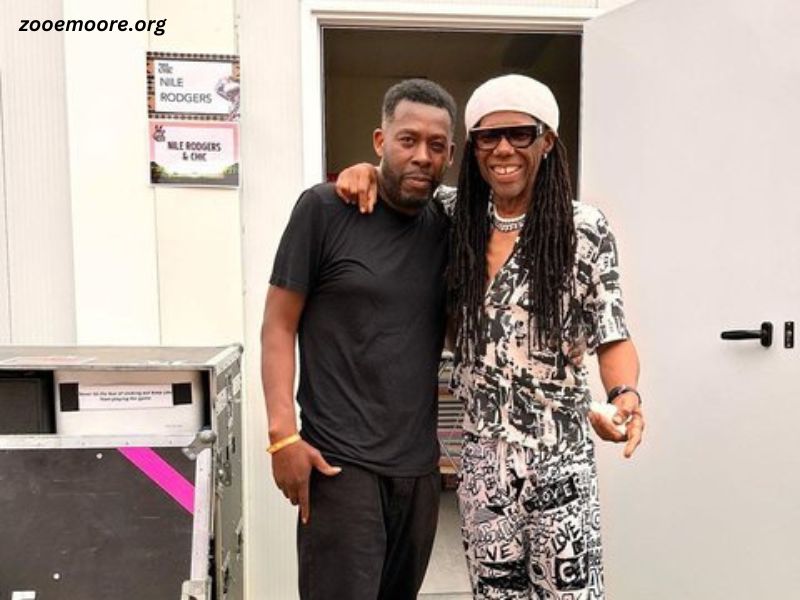The Wu-Tang Clan, an iconic hip-hop collective from Staten Island, New York, revolutionized the music industry with their gritty lyrics, innovative beats, and unique personas. Known for their deep-rooted connection to martial arts culture and philosophy, the group’s members adopted pseudonyms that resonated with their creative vision. However, fans often wonder about the real names behind these legendary artists. In this article, we dive deep into the Wu-Tang Clan members’ real names, exploring their origins and how they contributed to the group’s rise to fame.
The Formation of Wu-Tang Clan
Before we delve into the real names of the members, let’s set the stage with a brief overview of the group’s history. Wu-Tang Clan was founded in 1992 by Robert Diggs, better known as RZA, along with his cousins and friends. The group debuted with their groundbreaking album Enter the Wu-Tang (36 Chambers) in 1993, which quickly cemented their status as hip-hop legends. The group’s lineup consists of nine core members, each with their own distinctive style and contributions.
Wu-Tang Clan Members’ Real Names
1. RZA (Robert Fitzgerald Diggs)
- Stage Name Meaning: RZA stands for “Ruler Zig-Zag-Zig Allah,” a reference to the teachings of the Nation of Gods and Earths (Five Percent Nation).
- Role in Wu-Tang: RZA is the de facto leader, producer, and visionary behind Wu-Tang Clan. He crafted the group’s sound, blending raw beats with kung fu movie samples.
- Background: Born on July 5, 1969, in Brooklyn, New York, Robert Diggs was deeply influenced by his love for martial arts films and philosophy, shaping the Wu-Tang Clan’s identity.
2. GZA (Gary Eldridge Grice)
- Stage Name Meaning: GZA, pronounced “Jizza,” stands for “Genius.” He is also referred to as “The Genius.”
- Role in Wu-Tang: Known for his sharp lyricism and intellectual rhymes, GZA is often considered the most cerebral member of the group.
- Background: Born on August 22, 1966, in Brooklyn, Gary Grice was one of the first members to pursue a solo rap career before the formation of Wu-Tang.
3. Ol’ Dirty Bastard (Russell Tyrone Jones)
- Stage Name Meaning: The name signifies his unique, unorthodox style, with no father to his distinctive approach.
- Role in Wu-Tang: ODB was known for his wild personality, eccentric delivery, and unpredictable antics.
- Background: Born on November 15, 1968, in Brooklyn, Russell Jones was a cousin of RZA and GZA. Tragically, he passed away on November 13, 2004, due to a drug overdose.
4. Method Man (Clifford Smith Jr.)
- Stage Name Meaning: His name was inspired by a 1979 kung fu film titled The Fearless Young Boxer (dubbed in English as Method Man).
- Role in Wu-Tang: Renowned for his smooth flow and charismatic persona, Method Man is one of the most commercially successful members.
- Background: Born on March 2, 1971, in Hempstead, New York, Clifford Smith Jr. grew up in Staten Island, where he honed his rap skills.
5. Raekwon (Corey Woods)
- Stage Name Meaning: Raekwon, also known as “The Chef,” symbolizes his ability to cook up flavorful rhymes.
- Role in Wu-Tang: A storyteller at heart, Raekwon’s vivid narratives bring a cinematic quality to Wu-Tang’s music.
- Background: Born on January 12, 1970, in Brooklyn, Corey Woods was instrumental in the group’s lyrical prowess and cohesion.
6. Ghostface Killah (Dennis Coles)
- Stage Name Meaning: Inspired by a villain from the kung fu film Mystery of Chessboxing, his name reflects his mysterious and intense persona.
- Role in Wu-Tang: Ghostface Killah is celebrated for his emotionally charged storytelling and unique slang.
- Background: Born on May 9, 1970, in Staten Island, Dennis Coles shared a close bond with Raekwon, collaborating on numerous tracks and projects.
7. Inspectah Deck (Jason Richard Hunter)
- Stage Name Meaning: His name signifies his analytical approach to rhymes and his ability to “inspect” and dissect beats.
- Role in Wu-Tang: Known for his intricate wordplay and memorable verses, Inspectah Deck often sets the tone in group tracks.
- Background: Born on July 6, 1970, in The Bronx, Jason Hunter was raised in Staten Island, where he joined the Wu-Tang Clan.
8. U-God (Lamont Jody Hawkins)
- Stage Name Meaning: U-God reflects his belief in self-empowerment and spirituality.
- Role in Wu-Tang: U-God is known for his deep voice and powerful delivery, adding a distinct texture to the group’s sound.
- Background: Born on October 11, 1970, in Brooklyn, Lamont Hawkins contributed significantly to Wu-Tang’s ensemble dynamics.
9. Masta Killa (Elgin Turner)
- Stage Name Meaning: His name is derived from the 1978 kung fu film Master Killer.
- Role in Wu-Tang: Masta Killa is often described as the quiet and methodical member, with a thoughtful and deliberate rap style.
- Background: Born on August 18, 1969, in Brooklyn, Elgin Turner was the last member to join the Wu-Tang Clan but quickly became an integral part of the group.
Legacy and Impact
The Wu-Tang Clan’s influence extends far beyond their music. Their entrepreneurial spirit, from launching Wu-Tang Records to creating Wu Wear clothing, has inspired countless artists. The group also ventured into film and television, with RZA scoring movies and producing shows like Wu-Tang: An American Saga.
Their use of pseudonyms allowed members to craft larger-than-life personas, blending their streetwise experiences with imaginative storytelling. By understanding the real names behind these aliases, fans gain insight into the personal journeys that shaped the Wu-Tang Clan’s legendary status.
Lesser-Known Affiliates
In addition to the core nine members, Wu-Tang Clan includes a network of affiliates known as the “Wu-Tang Killa Bees.” Artists like Cappadonna, Killah Priest, and Shyheim have contributed to the group’s extended legacy.
- Cappadonna (Darryl Hill): Often regarded as the unofficial 10th member, Cappadonna has been featured on many Wu-Tang projects.
- Killah Priest (Walter Reed): Known for his spiritual and introspective lyrics, he has collaborated with various Wu-Tang members.
- Shyheim (Shyheim Dionel Franklin): Dubbed the “Rugged Child,” Shyheim gained fame as a teenage affiliate of Wu-Tang Clan.
Wu-Tang Clan’s Continued Relevance
Decades after their debut, Wu-Tang Clan remains a cultural phenomenon. Their music continues to resonate with both longtime fans and new listeners, while their branding has reached new heights. Projects like Hulu’s Wu-Tang: An American Saga and collaborations with high-profile brands have introduced the group to a younger generation.
The mystique surrounding their stage names and real identities only adds to their allure, making the Wu-Tang Clan a timeless symbol of hip-hop innovation.
Conclusion
The Wu-Tang Clan members’ real names reveal the human stories behind their legendary personas. Each member brought unique experiences, talents, and perspectives to the group, transforming Wu-Tang Clan into one of the most influential collectives in music history. From Robert Diggs’ visionary leadership as RZA to Russell Jones’ unforgettable antics as Ol’ Dirty Bastard, their legacy is a testament to the power of creativity and collaboration.
For fans of hip-hop, uncovering these real names deepens the appreciation of the Wu-Tang Clan’s artistry, showcasing the individuals who came together to create something truly extraordinary. As the Wu-Tang Clan famously said, “Wu-Tang Clan ain’t nuthing ta f’ wit” — a sentiment that still holds true today.



